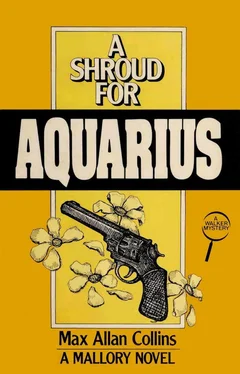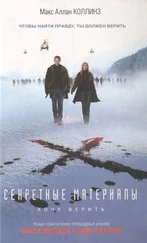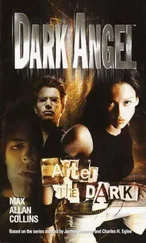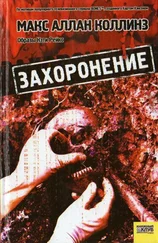“I’ve been sort of hoping you would.”
“What’s your attitude toward drugs? Recreational ones, I mean.”
“Well,” she said thoughtfully, “I’ve used some over the years. I may not look it today, prim and proper and all, but I did acid, once upon a time. Among other things.”
“And?”
“And I never had a single flashback, and I never sat and stared at the sun till I went blind, either.”
“Good for you. So, are you still into that, at all?”
“No. That’s kid stuff, don’t you think?”
“I do, actually. But a lot of people don’t.”
“I have a little girl of my own. I don’t have any of that stuff in my house. I see it at parties sometimes, but stay away from it, even there.”
“Why?”
We were at the parking ramp.
“I wasn’t a campus radical or anything,” she said. “But I’m the right age to remember what people said back then. What sort of changes they hoped to make. The Woodstock nation, give peace a chance, dawning of the age of Aquarius, all of it. And what became of it all? Look at Dave — he was a mover and shaker in those days, in those circles. And now he sells advertising. Oh, he does a great job at it, I’m all for it. But isn’t it funny how the only thing left from those days is the dope? The ideals, they’re all gone. But the dope is still here. And what good has ever come from it?”
I didn’t have an answer for her.
“Ginnie was part of that,” she said suddenly. “I didn’t know her but to speak to her, but she was part of that.”
“Part of what? Dope?”
“Yes.”
“She still used it?”
“Oh, probably. She used to be a dealer, everybody knows that.”
“Was she still?”
“I don’t know. Maybe not. I’m just an outsider.”
“Shirl, if you know something, please tell me.”
“I don’t, really.”
“All right.” I let some air out, took her by both her hands, squeezed gently. “Thanks for having a beer with me. I’d like to see you again some time.”
“Even though you found out I have a little girl at home?”
I grinned at her. “If I didn’t go out with women who have kids at home, I’d have to restrict my dating to preteens. And I’m getting a little long in the tooth for that. I like women my own age.”
“Is that why you wear the Sgt. Bilko T-shirt?”
“What do you mean?”
“If a girl recognizes Bilko, then she’s old enough to date you, is that it?”
I laughed. “Subconsciously, that could be the reason. Never thought of it that way. Could I have your phone number?”
She got a little piece of paper out of her purse and wrote the number on it and gave it to me.
“Please call,” she said. “I like you, Mal.”
“I like you too, Shirl. And I bet I’ll like your kid, too. It, uh, may be a week or so before you hear from me.”
“You’re going to be asking around about Ginnie.”
“Yes.”
“Just ’cause you’re curious about what made her tick.”
“I’m curious about what made her stop ticking.”
“Maybe you shouldn’t be.”
“Why not?”
“Didn’t you listen to me before? I said Ginnie was part of it, Mal.”
“Dope.”
“Yes, and where there’s dope, there’s fire.”
“That’s an interesting way of putting it.”
“I didn’t want to tell you, but somebody’s got to. That man you mentioned. That insurance agent.”
“Sturms.”
“Him. He’s the biggest coke dealer around.”
“Is your boss involved with him...?”
“In dope? I don’t know, and I don’t care. As far as I know, he’s just Dave’s insurance agent. But I’ve lived in this town since I was in high school, and Sturms is a fixture. And Ginnie was tight with him.”
“That’s what I understand. And that strikes me as strange — after all, he’s an ex-preppie and Ginnie was an ex-hippie. What do they have to be friends about? Sturms doesn’t hit me as Ginnie’s cup of tea at all — herbal or otherwise.”
“Must not have been friendship, then.”
“What else, then?”
“What’s left? Business.” She walked toward the ramp, then glanced back at me, green eyes flashing. “I’d like to hear from you, when you get this out of your system.”
“You will, Shirl.”
When I got this out of my system.
The funeral home was on West Third, in the first block beyond the business district in a stately, pillared old house typical of those on West Hill. West Hill was, after all, where the mansions and near-mansions of Port City’s first millionaires and near-millionaires had roosted, looking down on the Mississippi River (and the rest of Port City). More recent generations of the very wealthy had, for the most part, departed West Hill for condominiums and split-levels, usually out of state, and some of the grand gothic dwellings of their forefathers weren’t maintained like they should. The home I was parking in front of was an exception, a soft-focus oasis in the night, basking in pastel lighting, looking much better than most of its neighbors, looking just like it had twenty, fifty, a hundred years ago, perfectly preserved, a masterpiece of embalming.
The smell of flowers and a guy in a dark suit met me at the door. He was several years younger than I, but seemed infinitely wiser — his smile, which was barely there, was delivered with practiced compassion. I was no longer wearing the Bilko T-shirt and camouflage shorts (and shame on you for thinking I might be) but hadn’t quite seen my way to a suit, wearing a short-sleeve white shirt and gray slacks. The suit could wait for the graveside services tomorrow morning; I was just here for “family visitation.” The guy, a sort of maître d’ of death, led me by the arm to the guest book, which was on a little table at the foot of stairs that rose to darkness. I wasn’t interested in what was upstairs at a funeral parlor. I was even less interested in what was in the cellar.
I signed the guest book — under a flowing signature that spelled out another name from the past: Jill Forest. I’d dated her a few times, years ago. I glanced up the page and got no other similar twinges from yesterday. I did see Brennan’s signature.
Visitation rooms, as they say in the trade, were to my right and left. The one at right wasn’t being used; the one at left was barely being used.
Ginnie’s mother, a sweet-faced, pudgy little woman, wore a black dress but no veil; she clutched a hanky and the strap of her purse in one hand and with the other held the hand of her son, Roger. Neither Ginnie’s mother nor her brother Roger looked anything like her. Mrs. Mullens had a round face, and so did Roger. Same delicate features. Both wore glasses, but Roger’s were thick and black-rimmed where his mother’s were delicate and wire. Mother and son weighed about the same and were of a similar height and, despite the twenty years between them, could have been older sister and younger brother but for her white hair and his black, sitting there like a plump pair of salt and pepper shakers.
“Mrs. Mullens,” I said, standing before her.
She stood and hugged me and looked up at me with a brave smile and red eyes; a whisper of liquor on her breath. “Mal. Oh, Mal, I’m so glad you’re here...”
The coffin was nearby; closed. Plenty of flowers, though there had been few visitors. A few relatives — uncles, aunts — were walking around looking at the cards on the flowers, seeing who’d sent what.
“You just missed Jill Forest,” she said, sitting down. “She was in you kids’ class, wasn’t she?”
I nodded, took the chair on the other side of her; Roger looked over at me blankly, like the Pillsbury Doughboy.
Roger was two years older than Ginnie, and had always been something of a brain. As smart as Ginnie was, her brother was said to be smarter. Twenty years later, and he hadn’t set the world on fire, yet. Last time I talked to him, perhaps ten years ago, he’d been a computer programmer at Maxwell Consultants, an engineering firm.
Читать дальше












